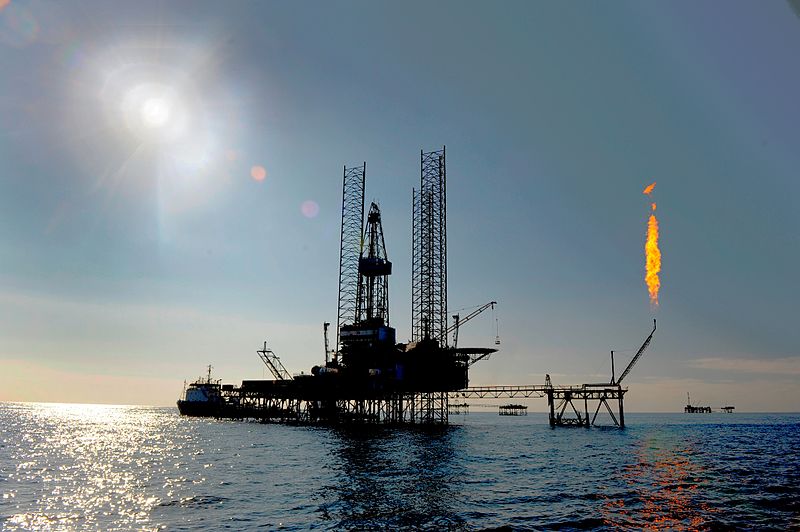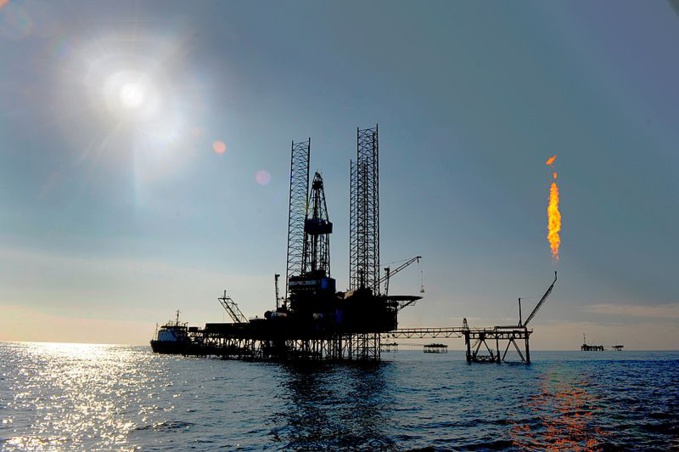The prospect of the emergence of a new large gas source near Europe looks strategically attractive as reserves in the North Sea are declining and West is concerned about dependence on Russian gas. However, development of deposits in the Eastern Mediterranean is complicated by political risks and rivalries between countries.
"The use of gas reserves can greatly change the political and economic climate in the region," says Emmanuel Karagiannis of King's College London. "At the same time, this can exacerbate disputes over borders that last for decades, and create new conflicts."
There are also economic obstacles. The world market is flooded with cheap gas from Russia, the US and other countries. The development of Zohr is economically feasible due to domestic demand in Egypt, but it is necessary to export gas to pay off the projects of Cyprus and Israel. "Commercial obstacles are as great as political ones," says independent analyst Gareth Winrow.
Despite these doubts, progress has been made. In December, Eni and French Total send off a ship rented for exploration of gas to the west of the Cyprian deposit "Aphrodite". Also, development of the Israeli field "Leviathan" began in 2017. This project, led by American Noble Energy, costs $ 3.75 billion. In addition, this year, progress is expected on the neighboring Karish and Tanin fields controlled by the Greek Energean.
Nevertheless, the exploration and development of gas is only half the battle. It is also necessary to create export routes to sell gas in international markets.
Thanks to political support, it is planned to build a gas pipeline from Israel to Italy for 6 billion euros through Cyprus and Greece. Four countries in December signed a preliminary agreement on the joint development of this project and want to complete it by 2025. The length of the gas pipeline should be 2,000 km, and it must pass at a depth of 3 km, which will be one of the most difficult projects of its kind. Many experts doubt its viability.
A cheaper option would be a pipeline through Turkey. But even if this country and Israel overcome their differences, the hostility of the latter with the Arab states excludes the possibility of building a gas pipeline through the waters of Libya and Syria. Another alternative route runs close to Cyprus. However, Nicosia has tense relations with Ankara, which supports the Turkish part of the island. According to Karagiannis, the pipeline could become part of the solution of the Cyprus issue, but the prospect for this option is uncertain after negotiations to unite the island failed in the last year.
While hydrocarbons may soon increase tensions in the region. Turkey called drilling on the shelf of Cyprus "unacceptable" violation of the "inalienable rights" of Turkish Cypriots. At the same time, a Turkish vessel was set off the coast of Northern Cyprus to carry out seismological studies to show Ankara's claims on the resources of the region. Analysts doubt whether energy companies will invest billions of dollars in the development of Cypriot gas unless there is an agreement eliminating political risks. Therefore, the development of the Aphrodite field has not yet begun, although it was discovered in 2011.
It was easier for Egypt to attract investment through a larger domestic market. The extraction at Zohr began less than three years after the discovery of gas, and it took seven years for Israeli Leviathan. Also, Egyptian gas can already be exported, as there are two terminals for liquefied natural gas (LNG) in the country. Moreover, gas can be supplied not only to Europe, but also to Asia via the Suez Canal.
Israel and Cyprus could also supply gas to Egyptian LNG terminals via shorter pipelines. Last year's report of the European Parliament said that this is the most realistic option. Egypt's oil minister Tarek El-Molla told the Financial Times last year that his country is ready to work with neighbors to create an energy hub. "We are ready to receive this gas, to liquefy it and sell it to the international market," he said.
source: ft.com
"The use of gas reserves can greatly change the political and economic climate in the region," says Emmanuel Karagiannis of King's College London. "At the same time, this can exacerbate disputes over borders that last for decades, and create new conflicts."
There are also economic obstacles. The world market is flooded with cheap gas from Russia, the US and other countries. The development of Zohr is economically feasible due to domestic demand in Egypt, but it is necessary to export gas to pay off the projects of Cyprus and Israel. "Commercial obstacles are as great as political ones," says independent analyst Gareth Winrow.
Despite these doubts, progress has been made. In December, Eni and French Total send off a ship rented for exploration of gas to the west of the Cyprian deposit "Aphrodite". Also, development of the Israeli field "Leviathan" began in 2017. This project, led by American Noble Energy, costs $ 3.75 billion. In addition, this year, progress is expected on the neighboring Karish and Tanin fields controlled by the Greek Energean.
Nevertheless, the exploration and development of gas is only half the battle. It is also necessary to create export routes to sell gas in international markets.
Thanks to political support, it is planned to build a gas pipeline from Israel to Italy for 6 billion euros through Cyprus and Greece. Four countries in December signed a preliminary agreement on the joint development of this project and want to complete it by 2025. The length of the gas pipeline should be 2,000 km, and it must pass at a depth of 3 km, which will be one of the most difficult projects of its kind. Many experts doubt its viability.
A cheaper option would be a pipeline through Turkey. But even if this country and Israel overcome their differences, the hostility of the latter with the Arab states excludes the possibility of building a gas pipeline through the waters of Libya and Syria. Another alternative route runs close to Cyprus. However, Nicosia has tense relations with Ankara, which supports the Turkish part of the island. According to Karagiannis, the pipeline could become part of the solution of the Cyprus issue, but the prospect for this option is uncertain after negotiations to unite the island failed in the last year.
While hydrocarbons may soon increase tensions in the region. Turkey called drilling on the shelf of Cyprus "unacceptable" violation of the "inalienable rights" of Turkish Cypriots. At the same time, a Turkish vessel was set off the coast of Northern Cyprus to carry out seismological studies to show Ankara's claims on the resources of the region. Analysts doubt whether energy companies will invest billions of dollars in the development of Cypriot gas unless there is an agreement eliminating political risks. Therefore, the development of the Aphrodite field has not yet begun, although it was discovered in 2011.
It was easier for Egypt to attract investment through a larger domestic market. The extraction at Zohr began less than three years after the discovery of gas, and it took seven years for Israeli Leviathan. Also, Egyptian gas can already be exported, as there are two terminals for liquefied natural gas (LNG) in the country. Moreover, gas can be supplied not only to Europe, but also to Asia via the Suez Canal.
Israel and Cyprus could also supply gas to Egyptian LNG terminals via shorter pipelines. Last year's report of the European Parliament said that this is the most realistic option. Egypt's oil minister Tarek El-Molla told the Financial Times last year that his country is ready to work with neighbors to create an energy hub. "We are ready to receive this gas, to liquefy it and sell it to the international market," he said.
source: ft.com



















